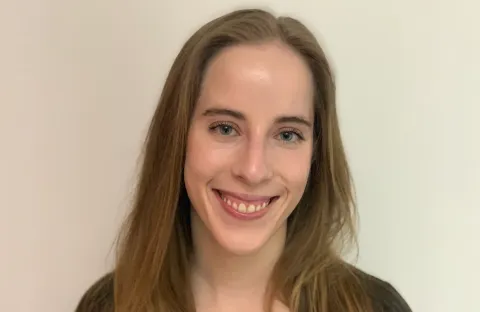"I hope to continue growing as an individual technical contributor and as a leader in my community and organization."

Theresa Mammarella
- Degree:
- Bachelor of Applied Science
- Grad year: 2017
- Program:
- Campus: Vancouver
Job title as of 2023: Software Engineer, IBM
Why did you want to study engineering?
I wanted to be an engineer for most of my life. My dad is also an engineer, and he always encouraged me to build and create things when I was growing up. In high school I enjoyed math and physics and had the opportunity to take STEM classes and intern at a local engineering firm, which further peaked my interest. By the time I was applying to university I was quite confident I would enjoy a career in STEM.
Why did you choose Computer Engineering?
I had initially intended to study electrical engineering like my dad. During the first general year of engineering at UBC I took a bunch of different classes, including a C programming class. That course ended up being my favourite by far, so when it came time to apply for my specialization in second year, I applied for computer engineering. I had no idea what a career in computer engineering would look like but I’m happy to say I’ve never looked back.
What skills did you learn as an engineering student?
I’m one of the only people I know to be able to say that I use the skills on learned in university on a near daily basis. There are quite a few classes that have provided me with skills I continue to build on, including computer architecture, operating systems and systems engineering courses.
What are the highlights of your job?
Besides getting to work on interesting technology, one of the things I love about my career is being involved in open-source technology and communities. I’ve met so many incredible and passionate technologists around the world because of this.
One of the ways I contribute my knowledge is by speaking at and attending conferences.
In a couple of months, I’ll be heading to Oslo, Norway, to educate other developers on cybersecurity best practices. It’s really rewarding that I've been able to use my software engineering degree to continue to learn and to help others learn as well.
Any advice for new students?
Don’t be afraid to try new things!
I was nervous about going into computer engineering at first. But I'm glad I took the leap because I was able to start a career that I truly enjoy. My second piece of advice is to join extracurricular activities. Starting university is a huge adjustment and building a community and support system early on can help set you up for success with a challenging degree like engineering – it’s definitely worth it!




